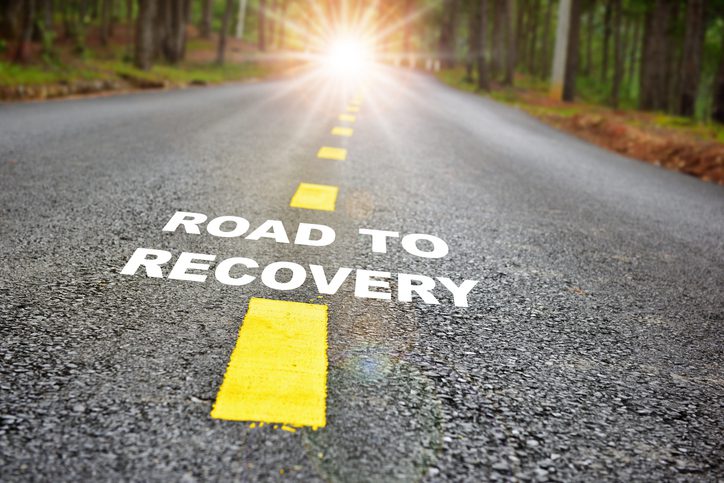Do you feel like you’re at a crossroads, grappling with the shadows of an addiction that has cast a dark cloud over your life? Is it becoming impossible to ignore a gnawing concern that your substance use is spiraling out of control? Know that you are not alone.
The path to recovery is often paved with uncertainty and introspection. It’s natural to wonder if you’re ready for treatment, if it’s the right step for you, and if recovery holds the promise of a brighter future. Let us help you determine your next steps.
Signs That You’re Ready for Residential Addiction Treatment
By considering residential addiction treatment, you’re taking a crucial step in reclaiming your life. Here are some signs that residential addiction treatment might be the right choice for your recovery journey.
- You recognize that your substance abuse has become a problem. Acknowledging that your drug or alcohol use is causing significant negative consequences in your life is essential. These consequences could include health issues, strained relationships, work or school problems, legal troubles, or financial difficulties.
- You’re ready for change. Feeling a genuine desire and motivation to overcome your addiction is also crucial. This can manifest as a strong willingness to take responsibility for your actions and make the necessary changes to achieve recovery.
- You’ve already tried to quit using or to reduce your substance use on your own. Making previous attempts to quit or reduce your substance use, even if unsuccessful, indicates a readiness to seek treatment. It shows a willingness to address the issue and a recognition that professional help may be necessary.
- You want to lead a healthier lifestyle. Being open to making significant lifestyle changes, such as avoiding triggers, changing your social circle, and seeking professional support, demonstrates a readiness for treatment. Recovery often requires a shift in habits, environments, and coping mechanisms.
- You have a solid support system to lean on. Having a strong support system, including family, friends, or a support group, can greatly contribute to a successful recovery. If you have a network of people who are willing to encourage you throughout your journey, it can indicate readiness for treatment. (If you don’t have strong support, however, you can choose a treatment program that will connect you to the resources you need to be successful.)
Confronting Your Fear of Failure
Often, people who are considering addiction treatment worry that they’re not cut out for recovery. Their fear holds them back from getting the help they need to lead a wellness-focused lifestyle—especially if they’ve been unsuccessful with previous treatment attempts.
It’s important to remember that relapse is considered a normal part of the recovery process for individuals with substance use disorders, due to addiction’s chronic and complex nature. If you’ve relapsed before, that doesn’t mean you should give up. There’s always hope for recovery—regardless of the challenges you’ve faced in the past.
Here are some tips to help you move forward with your recovery if you’ve experienced a previous relapse and are wondering if it’s time to try again:
- Evaluate your previous experiences. Think about your past treatment attempts and identify what aspects were ineffective. Consider the type of treatment program, the approach used, the level of support, and any specific challenges you encountered. Understanding these factors can help you make more informed decisions moving forward.
- Consider a different treatment approach. For example, if you have tried outpatient treatment before, you might consider a residential or inpatient program or vice versa. Different treatment modalities may also be worth exploring, such as cognitive behavioral therapy (CBT), dialectical behavior therapy (DBT), or holistic approaches.
- Think about the impact of underlying issues. People with substance use disorders often have co-occurring mental health issues, chronic pain, or unprocessed traumatic events from their past. If these underlying issues were not adequately addressed in your previous treatment attempts, integrated treatment that addresses the whole person can lead to better outcomes.
- Strive for progress, not perfection. Recovery is a journey that can involve setbacks and challenges. It’s essential to maintain a mindset of perseverance and resilience. If previous treatment attempts didn’t work, challenge yourself to view them as learning experiences and opportunities for growth.
Your Journey to Recovery Begins Now
At Waypoint Recovery Center, we understand the courage it takes to admit that you need help overcoming this disease. Our team of compassionate professionals is here to guide you every step of the way—providing a safe and supportive environment for your recovery journey. With evidence-based therapies, holistic approaches, and personalized care, our South Carolina residential addiction treatment center provides a transformative experience for anyone in search of a brighter future.
Don’t let addiction hold you back any longer. Our team is ready to answer your questions, address your concerns, and help you make an informed decision about your treatment options. Contact us today.





